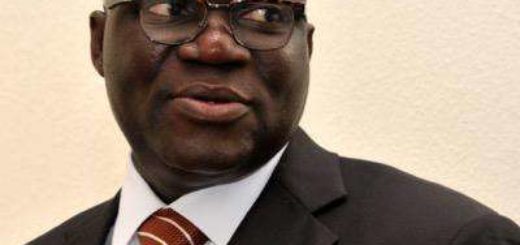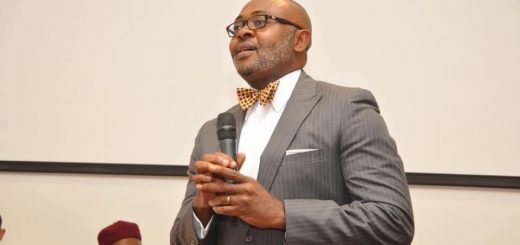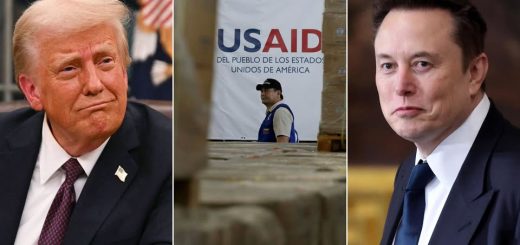My June 12 Musing – Frank Ofili
390 views
I woke up this morning to read my oga, Richard Akinnola’s Facebook update to the effect that he won’t be making any posts on the happenings that surrounded the annulment of the historic presidential election of June 12, 1993, because according to him, “we haven’t learnt any lesson”.
Oga Richard continued that he was “…more disappointed with the led than the rulers” (because) “political partisanship and stomach infrastructure have beclouded our rationality, to the extent that we validate the most odious tendencies which we fought for over two decades ago”.
I feel the pain of Oga Richard. But somehow, I feel more pained that I won’t be reading, as I usually do on this day, his usual insightful commentaries on the events surrounding an election business mogul, Chief MKO Abiola, won convincingly but which General Ibrahim Babangida, dictator and self-proclaimed military president at the time, annulled without so much as a scant regard for the democratic interests of Nigeria.
For those who do not know, a historic event happened on June 12, 1993. A presidential election in which Chief MKO Abiola of the SDP and Bashir Tofa of the NRC were contenders, held in Nigeria on that day. Despite all obstacles and booby traps put in place by the military junta of Ibrahim Babangida to torpedo it, the election held successfully. As results were tumbling in, it became clear that Chief MKO Abiola had won convincingly.
And then tragedy struck.
General Babangida announced the annulment of the election based a porous court injunction obtained by the Association for Better Nigeria (ABN), an illegal group founded by Chief Arthur Nzeribe believed to be doing Babangida’s hatchet job. The rest, as they say, is now history.
That history is 27 years old today. Since my oga Richard will not avail us his rich experience today as one of the foot soldiers of the pro-democracy movement at the time, I will share mine from my little corner then,
When you see me today being so hopeful about Project Nigeria despite her imperfections, it is not for nothing. There is some history you want to forget, in the face of current realities, but sometimes you find you cannot. Come with me as I relive my own experience of June 12.
One day in June 1994 (exact date forgotten), at the height of June 12 struggle when Abacha’s dictatorship was in its most brutal, pro-democracy groups had called out Nigerians to boycott work and sit at home in protest against the annulment of the June 12, 1993 Presidential election. The leadership of the NLC was dilly-dallying, neither here nor there, but the affiliate unions were itching for a showdown with Abacha’s junta. NUPENG and PENGASSAN under the leadership of the inimitable Frank Ovie Kokori and others had raised the ante to unprecedented level.
I was Secretary of the National Union of Banks, Insurance and Financial Institutions Employees (NUBIFIE), UBA Domestic Committee, Effurun (Warri) Branch. I was also the Secretary of the larger Warri Branch Committee of NUBIFIE. In this capacity, I was also a member of the then Edo/Delta State Executive Council of NUBIFIE.
As a Labour union we were obliged to obey the call of our national executive which as at that time had not got a clear green light from the NLC leadership over the sit-at-home order issued by the pro-democracy movement. Our national executive had to improvise an excuse to embark on the sit-at-home order.
Since we did not have a trade dispute with our employers, and in order not to be accused of being politically partisan, NUBIFIE central body asked us to hide under the excuse that there was no transportation to work since Kokori and Co. had ensured that fuel was not delivered anywhere in the country, and also since National Union of Road Transport Workers had also boycotted the roads.
And so, I and other NUBIFIE leaders in Warri, Effurun, Sapele, Ughelli and environ directed our members, mostly junior workers of banks, insurance and other financial institutions, to stay at home until further notice. Senior workers however were officially not on strike but since the junior workers were on strike, they too, technically, were. They did go to office but hardly do anything. They merely went to mark their presence. We union leaders too usually go to offices to monitor compliance. It was serious underground work then reminiscent of war time since the streets were deserted.
It was on one of such days I went to office, at great risk, to monitor compliance that operatives of the then Directorate of Military Intelligence (DMI) came looking for me at UBA Effurun Branch where I was working. Although I was in the office, the DMI operatives did not know that. They walked into my manager’s office and asked him to produce me by all means.
My manager then (Mr. Adebayo Adesiyan of blessed memory) told the DMI operatives that I had not reported for work for about a week and that the bank was in fact looking for me.
After some questioning and sauntering around in the banking hall (apparently the DMI officials did not have a photograph of me) the men left with an instruction for Mr. Adesiyan to contact them the moment he set eyes on me. They left their contact number, then an analogue landline.
As soon as they left, Mr. Adesiyan summoned me to his office, gave me some money and asked me to leave town immediately. Since the streets were deserted, how to leave town became a problem, so he drove me to a friend’s house at Esi Layout, Warri, who himself smuggled me to his girlfriend’s family house at Ughelli.
This was a time there was neither cell phone nor social media. Mobilization was mainly by circular, leaflets, posters or by leg work. A time when the DMI was omnipotent, omnipresent and, in a manner of speaking, omniscient.
So, when I see some young folks today defending what oga Richard referred to as “odious tendencies”, I laugh. This social media generation has missed it. The Nigerian youth of today know nothing about sacrifice to the nation. They have been sadly divided, disempowered, dismembered, subdued and snookered (apologies to my friend Emeka Oparah) by the elites using religion and ethnicity.
Today, I remember that day in 1994. I also remember and pay tribute to the memory of Adebayo Adesiyan, the man who not only saved me from Abacha’s gulag but also sat me down and gave me a serious talk about rethinking my future









